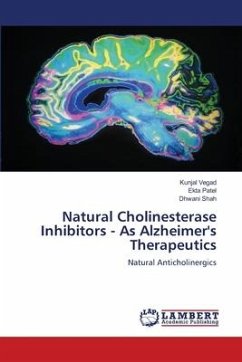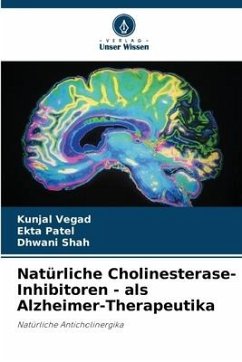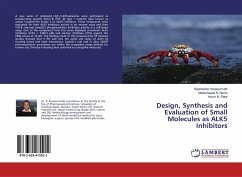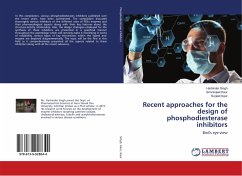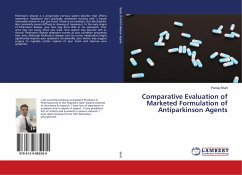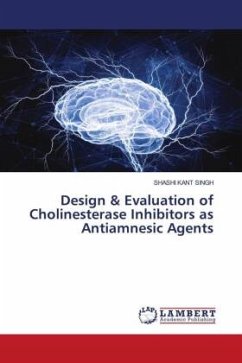
Design & Evaluation of Cholinesterase Inhibitors as Antiamnesic Agents
Versandkostenfrei!
Versandfertig in 6-10 Tagen
40,99 €
inkl. MwSt.

PAYBACK Punkte
20 °P sammeln!
Alzheimer's disease (AD) is a slowly progressive devasting neurodegenerative disorder of the central nervous system characterized by the accumulation of beta-amyloid proteins and the selective loss of cholinergic neurons in the brain. Generally, the drugs used, clinically to treat AD increases the acetylcholine level by inhibiting the metabolism of acetylcholinesterase (AChE). On the basis of the above-reported work and with the enthusiasm to discover and established a new lead molecule to treat AD, some new Schiff bases of p-amino benzoic acid and semicarbazones of 4-aminopyridine were synthe...
Alzheimer's disease (AD) is a slowly progressive devasting neurodegenerative disorder of the central nervous system characterized by the accumulation of beta-amyloid proteins and the selective loss of cholinergic neurons in the brain. Generally, the drugs used, clinically to treat AD increases the acetylcholine level by inhibiting the metabolism of acetylcholinesterase (AChE). On the basis of the above-reported work and with the enthusiasm to discover and established a new lead molecule to treat AD, some new Schiff bases of p-amino benzoic acid and semicarbazones of 4-aminopyridine were synthesized. All the compounds were synthesized, purified, and characterized by state of art techniques. These compounds were then evaluated against anti-amnesic, cognition-enhancing, and anticholinesterase activity through their respective in-vitro and in-vivo models.



